Join me today to meet a searcher saint who looked for his purpose in war, work and social climbing before finding it among the poor.
Name: John, John of God
Life: c. 1495 - 1550
Status: Saint
Feast: March 8
You can listen to this as a podcast on Apple Podcasts, Pocket Casts, Spotify or right here on Substack. If you prefer video, you can also follow on YouTube and Odysee (unfortunately, videos on Odysee may be slower to update).
The nobleman had devised a trap for John of God. He knew the stories about John, of course, about the laughing, smiling man who had built his hospital in Granada, in the South of Spain. Supposedly, John would give freely to all who asked him in Christ’s name. That might be true for pennies, the nobleman thought, but what about real money? And so the nobleman had made sure that earlier in the day John had received 25 gold coins: a windfall for his hospital. Now, the nobleman disguised himself and met John on the street. The nobleman in disguise pretended to be a poor man who had come to town to deal with a vexatious lawsuit, only he had no money and was sure to lose. The nobleman asked in Christ’s name, and John dug into his wallet and handed him everything he could spare. Afterwards, the nobleman counted the money. All 25 gold coins were there.
The nobleman probably did not know it, but he was in a role that had already been played many times. Many people had been baffled by John of God. They couldn’t figure out the tall, wiry, ever-cheerful man who somehow operated his makeshift hospital for the poor and sick and insane while giving away anything he got his hands on. His life made no sense. Neither did his finances. John of God had been investigated many times, both overtly and covertly. And the end result was always the same. Yesterday’s investigators became today’s supporters, and against all odds, the hospital of John of God found the money to stagger on for another week. And so it was with the humbled, sheepish nobleman, who came to the hospital to give John back his 25 gold coins, plus 150 more of greater value, as well as bringing fresh provisions and good meat to feed the people in the hospital.
The story of John of God begins with a sad mystery. John was born in Montemor-o-Novo, in central Portugal, a little East of Lisbon. Around 1503, when John was eight or nine years old, a travelling priest came through his village. The priest stayed with John’s parents. Nothing seemed amiss. Then, the next day, both the priest and the boy were gone. John’s frantic parents searched everywhere. They would never see their son again.
What had happened? It seems obvious that the priest must have been at fault. Curiously, our early sources do not lay the fault at the priest’s feet. John’s first biographer does not devote even a single sentence to condemning the priest, and this in a long biography that has plenty of condemnation to go round. But if the priest was not at fault, who was? Biographers have been left scratching their heads about this question for five hundred years. Could John’s parents have entrusted him to the priest? Poor parents sometimes did this, hoping to send their children to a better life. But John’s parents clearly had not planned his departure, and they were a middle-class family. Did John run away from home? This seems at least possible. As an older man, John would blame himself for leaving and for what happened to his parents afterwards. Perhaps, somehow, John convinced the priest either that John’s situation at home was not good or that his parents were intentionally sending him away. And then he left.
If John had any regrets he did not act on them. Still, he must have thought often about home. I wonder whether this was the origin of the deep well of sad restlessness that seemed to drive John on from place to place in the coming years. For now, apparently still in the company of the priest, John walked East, from Portugal into Spain. In the town of Oropesa in Western Spain, the priest found John a new home. He would be a junior farm hand on a wealthy man’s farm. In time, John became the lead shepherd. But then, his small town became caught up in war.
The political seeds of the war had been planted a few years earlier in the election to choose the next Holy Roman Emperor. By long tradition, a series of noble electors across the Holy Roman Empire would select a powerful king to rise and become the Emperor of all, ruling much of Italy and the fragmented fiefdoms of modern Germany. The king of France had hoped to be elected, but this year the choice fell on young Charles I, the king of Spain. And so he became Charles V, the Holy Roman Emperor, ruling over vast domains that stretched Westward from Italy and Austria across the Atlantic to Cuba and the territories of New Spain which Hernan Cortés and his chaplain, Blessed Bartolomé Olmedo, had recently carved out of the ruins of the Aztec empire in modern Mexico. The king of France, angry at having been overlooked, began to plan his revenge. He struck at Charles’ homeland of Spain, sending his army deep into the country. But the French plan backfired. A wave of patriotism swept across Spain, and Spaniards took up arms. Oropesa alone sent forty mounted cavalry with infantry support, and even the lead shepherd John left his flocks and marched to war with the men of his adopted town. He was 28.
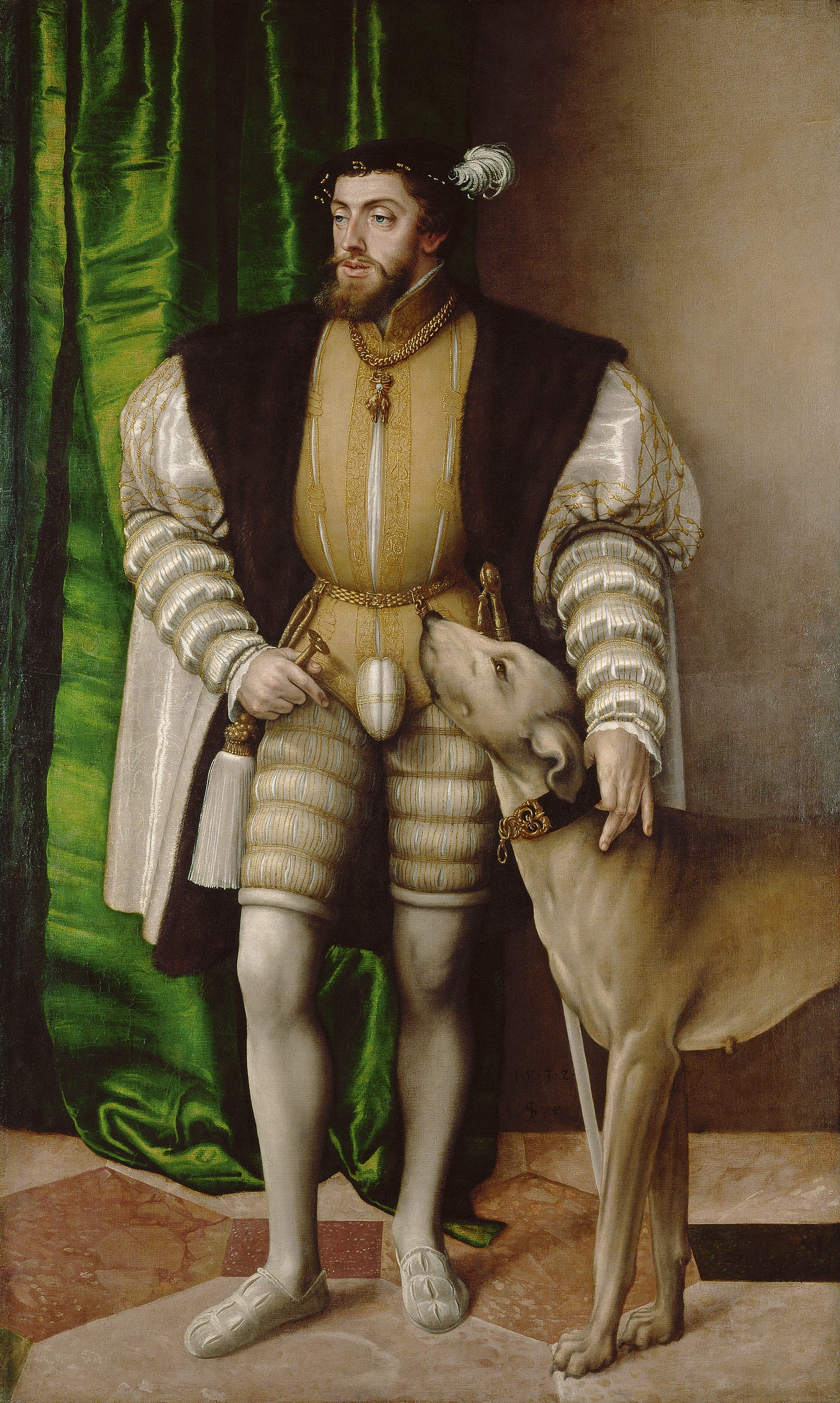
John and the other men of Oropesa joined the force under the Emperor’s personal command. They were laying siege to Fuenterrabía, modern Hondarribia in Northern Spain, almost on the French border. Early on, John seems to have done well, and may have been promoted to be a sort of quartermaster. Soon the emperor’s famous artillery was pounding the city walls. But before the city fell, John got in trouble. Some clothes in his care had disappeared. The senior officers were furious, and they sentenced John to be hanged, and then at the last moment had second thoughts and discharged him instead.
John found himself uncertain where to go. He returned to Oropesa, and worked as a shepherd again. Some years passed, until he was once again called to arms. This time the threat was not to Spain, but to Christendom itself. In the East, the Ottoman Sultan Suleiman the Magnificent remembered the way his grandfather had been defeated by John Hunyadi and Saint John of Capistrano, and was determined to do better. Suleiman had already defeated the Knights Hospitaller, and driven them from their fortress at Rhodes to the distant island of Malta. Now Suleiman was moving West, toward Vienna, and Emperor Charles was rallying the forces of Christendom to face him there.
John was part of the Spanish contingent that went to defend Vienna. The armies faced each other, and neither force was ready to engage. Some of Suleiman’s supplies had been delayed, and now he hesitated. Finally, staring at the forces of Christendom and the famous imperial artillery the Sultan blinked. He turned and led his army away. Vienna would be safe - for now.
The war was over, and John, now 38 years old, was once again unsure what to do. And so he decided to do something he must have thought about doing many times. John travelled back to Montemor-o-Novo, the village of his birth. He wanted to find out what had happened after he left. He wanted to ask about his parents. He found that he could no longer remember their names.
John wandered around the place where he had grown up, looking for someone who would recognize or remember him. No one did. Finally he came across an old man who remembered the story of the little boy who had disappeared thirty years before. The old man was able to finish the story for John. The shock of loss had, it turned out, been too much for John’s mother, and she had died only a few days after John had disappeared. John’s father had dealt with things differently. He had eventually left his home and joined a monastery, living a saintly life and dying there years later. John blamed himself, the news filling the well of sadness within him. When the locals offered John the chance to stay and make a new life with them, he said no.
John’s restlessness would carry him all the way to Africa. He went to the Christian city of Ceuta, today an outpost of Spain on the Southern tip of Africa, bordering on Morocco. The Sultan Suleiman the Magnificent had been lashing out at Christians by supporting the dreaded pirate slavers who haunted the African coast and the Mediterranean. A massive pirate attack on Ceuta was thought to be imminent. John took part in the frantic work of fortifying the area. But perhaps the fortifications were too imposing, for no attack came. John went back to Spain.
For a time, John wandered through Spain before settling in Granada. It was a good place to start a new career. Granada had been one of the last cities to be recaptured in the Christian reconquest of Spain, and by the time Granada became Christian again even the architecture was out of step with Christian preferences. The triumphant Spanish set about transforming the city, leading to a building boom. John decided to reinvent himself yet again, and ride the boom times upward into the middle class. And so he entered the world of the new information technology, coming from German designers to customers across Christendom: the printed book. John became a book peddler, carrying his stock in a backpack. Soon he could afford a small storefront. Now in his mid-forties, for the first time in his life, John was settling into middle class respectability. And in the hustle and bustle of trade, John’s inner well of restless sadness was sealed up and almost forgotten.
And then, a preacher came to Granada. His name was Father John of Avila. In time he would be a spiritual director to many saints, but that was in the future. Now he was a rising star in the Church. One day John the bookseller went to hear Father Avila preach, and while many were moved by Father Avila’s words, John found himself transformed. The sadness that John had carried with him all these years flowed over . John ran out of the church shouting that he needed the mercy of Christ.
For the next few months, John would engage in behaviour so bizarre that many thought he was insane. He went back to his bookstore and destroyed his stock of secular books, giving away his Christian books for free. He gave away most of his clothes. He shouted out his sins to anyone who would listen. The people of Granada concluded that the bookseller had gone mad, and eventually he was arrested and involuntarily confined in a hospital.
One of the few people who did not think John was insane was Father Avila. John had spoken to him shortly after hearing him preach. Father Avila understood that John was undergoing a radical self-humbling. It was a strange, difficult path, and Father Avila had explained the situation to John in terms that he as a soldier would understand. John was trying to achieve sanctity; he was trying to join the Church’s little platoon of saints as they raided into enemy territory. That meant that the more John succeeded, the more he would find himself surrounded by the enemy. But this was not an impossible mission. Victory was within reach, and the more John struggled, the closer he would come. John understood what the priest was telling him. Father Avila would be John’s spiritual director for the rest of his life.
John had thrown himself into God’s hands. That path led him to be arrested and locked in a hospital. Fortunately for John, doctors had settled the question of how to cure conditions like his. They put him on a regimen of beatings. But John remembered what Father Avila had told him. And so as he underwent this treatment, John looked around at the others in the hospital, the sick, the insane and those who had simply fallen through the cracks in Granada. John realized that he had discovered his purpose. Before long, the doctors who were examining John were pleased to find that the daily beatings had restored his sanity. He was issued with a certificate of sanity and went on his way.
John had found his purpose. He returned to Granada and acquired a small house. He turned it into a refuge for the sick and the poor. At first there was not even any medicine, and all John could do was provide people with a place to sleep. John begged for food to supply all those in the hospital, and when he went out into the streets, people noticed another change that had taken place in him. He had become happy. A deep joy radiated from him, which had a tendency to bring those who met him around to his point of view. Later, the people of Granada would remember John of God as a laughing saint.
Soon people were donating enough for medicine for the sick. John moved to a larger location. He had a knack for noticing those who had failed to find their place in Granada’s boom time. He helped the poor who were just hanging on: unmarried women, mothers of poor families, nuns and consecrated virgins living lives of obscurity. When an old beggar died, apparently forgotten by the world, the first person on the scene tended to be John, to carefully gather up the body and bring it to be buried. John would describe his own project in these very general terms:
…this house is for everybody, without making any distinctions we take in people suffering from every disease and people of every type, so that there are cripples, the maimed, lepers, mutes, the insane, paralytics, people with ringworm, and also very old people and many children - and this is without counting the large numbers of other pilgrims and wayfarers who come here and to whom we give fire, water, salt, and pots, so that they can cook. There is no income at all for all this, but Jesus Christ looks after everything
This was not easy work. John was often beaten up and abused. Despite this, he was determined to view people at their best. Once, John found a group of prostitutes who promised to change their lives if John would help them. Within a few days of trying to help them three had already taken advantage of his generosity and snuck away. John’s assistant was disgusted: this was why it was pointless to try to help these people. But John asked him whether, if he bought four portions of food at the market and three went bad on the journey home, he would throw away the fourth portion out of spite? John was not going to throw anyone away. He helped the last woman, settling her and finding her a husband and in what would prove to be a changed life.
That was the sort of transformation that John was aiming for. The point was never to keep people sick or dependent. In the hospital, he tried to help people to find employment, bringing in wool and silk so that those who could do nothing else could spin it into thread. When they were well enough, John found entry-level jobs for those who had been in his care. He tried to match up single men and women in Christian marriages.
Money flowed into the hospital and flowed out again in John’s bottomless charity. On a few occasions, John gave away his own clothes and walked back in a sheet. When the hospital caught fire, John was the first in, vaulting through flames to grab the sick and carry them out.
John’s fame began to spread. The bishop met with him. John wasn’t a priest, or a monk, or anything. He had no title, no official role at all, but the bishop thought he needed something. And so the bishop gave him the name that John would obediently use for the rest of his life: John of God.
Soon, the story of John of God had spread beyond Granada. He visited the royal court. But such things were not for John. He was happy to return home to the sick and the poor, where his real interests lay.
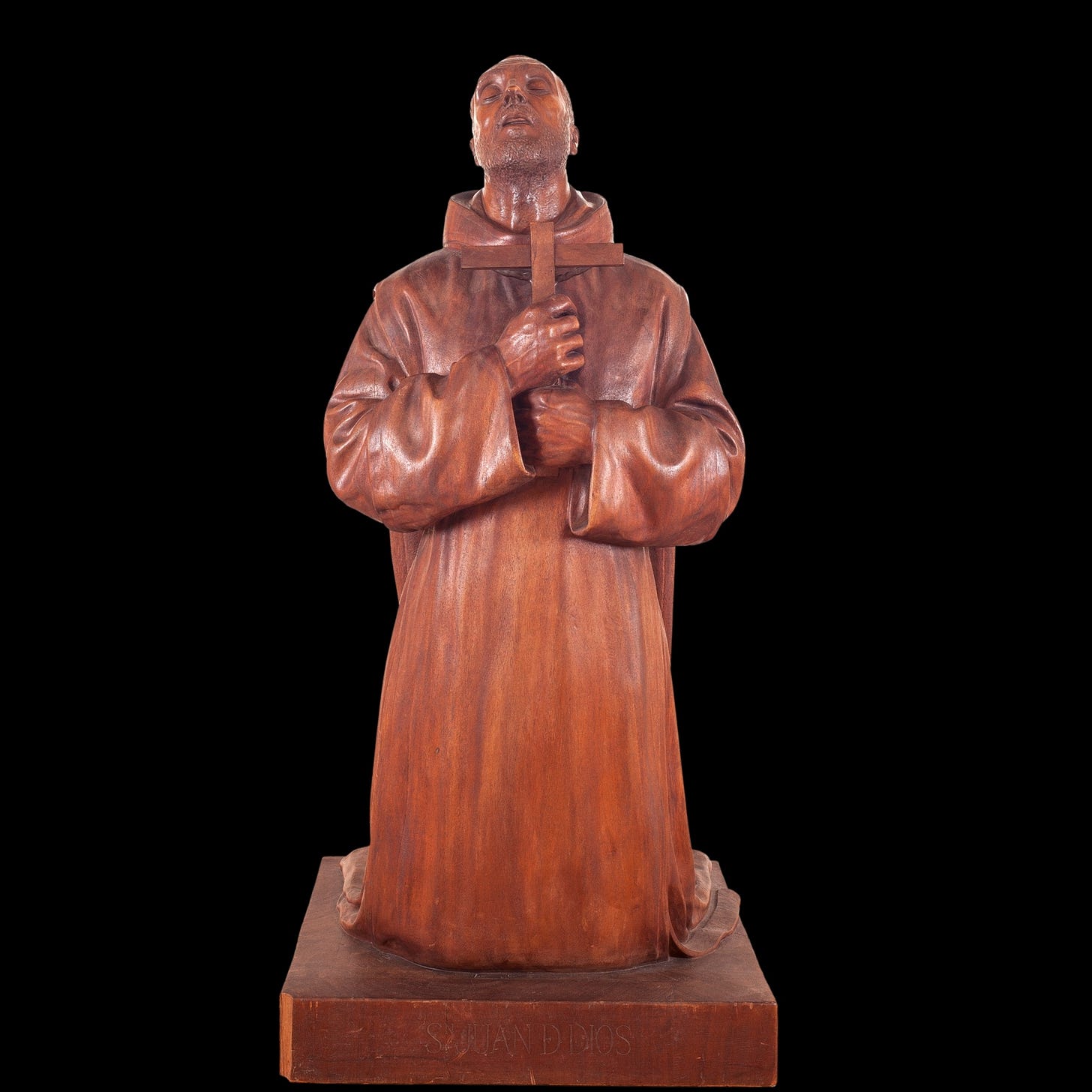
John of God was 55 when he became very sick himself. The problem was, he worked so hard that few people noticed until the sickness had really taken hold. By now he was a beloved figure in Granada. Too late, someone realized how sick John was, and he was taken, not entirely voluntarily, to the house of a noblewoman to get better. John kept wanting to go back to his work, but he was comforted when the bishop came and promised to see that the work continued, and that the hospital remained funded. Indeed, the Hospitaller Order of Saint John of God is still with us today.
John had always said that he would die at night. It was a little after midnight on a Friday when he climbed out of bed and knelt beside it, grasping a crucifix, and said:
“Jesus, Jesus, into your hands I commend my soul.”
After a long period of silence, those with him realized that he had died.
In the morning, Granada woke up to the news that Saint John of God was dead. Soon the house was full of people. By mid morning, it was impossible even to squeeze onto the street where the house was, and nobles were fighting for the right to carry John’s body in the funeral procession.
In Granada, everyone had a story about the saint, to be told and retold. They told about the time the saint was too weak to go on and the angel Gabriel came to his assistance. They told the story of the time the saint carried a sick man into the hospital and began to help clean him up, only to recognize on the mysterious stranger’s feet the wounds caused fifteen centuries before by the crucifixion nails. These stories seemed fitting in the life of a saint that defied logic, who was broke and yet did nothing but give, who lived in squalor but was filled with laughter, who seemed to be willing to see the best in everyone but who, as he told anyone who would listen, trusted in Christ and in Him alone.
If you enjoy the Manly Saints Project, please consider signing up for a subscription on Substack, or click here or on the logo below to buy me a beer.




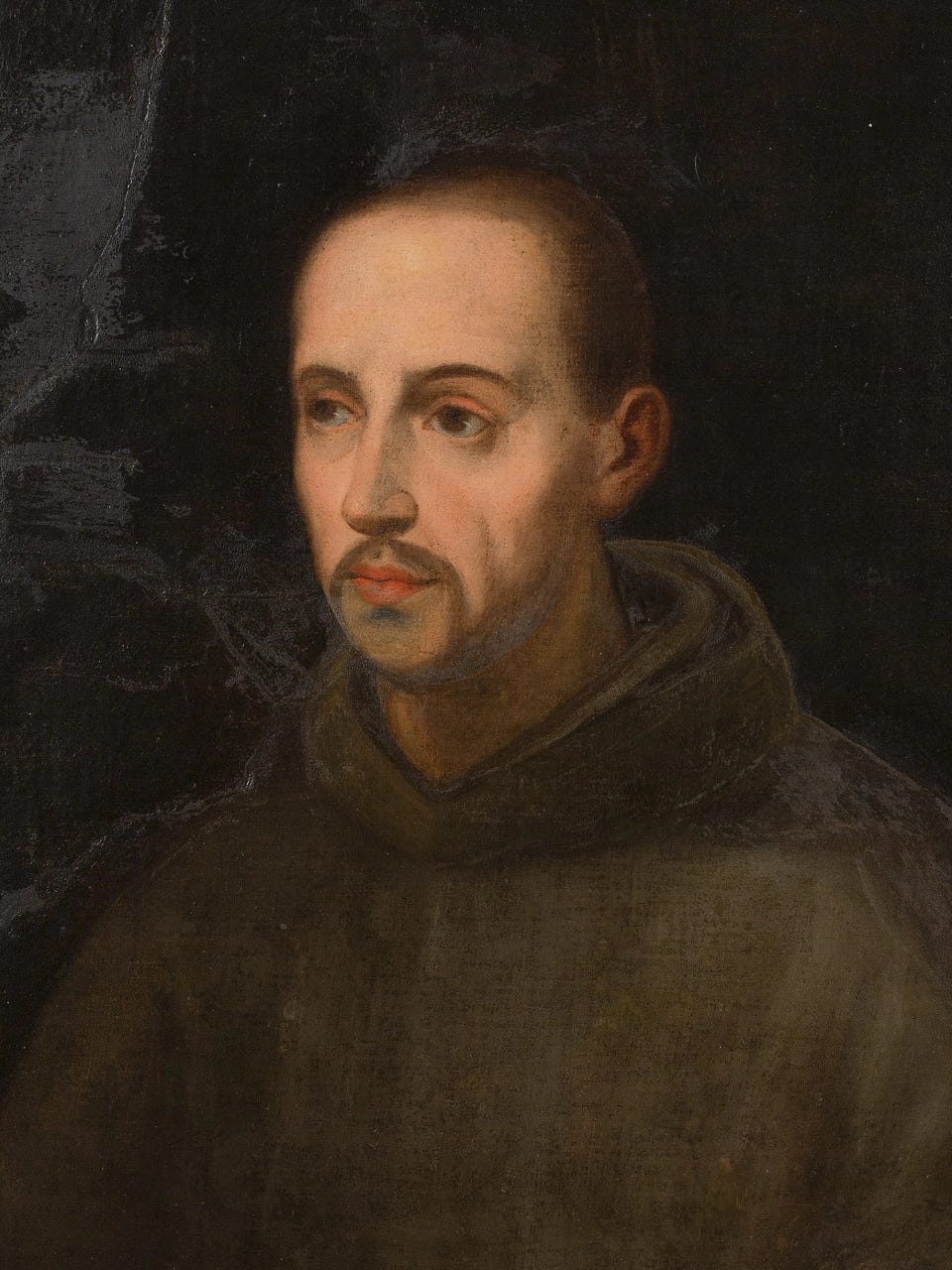
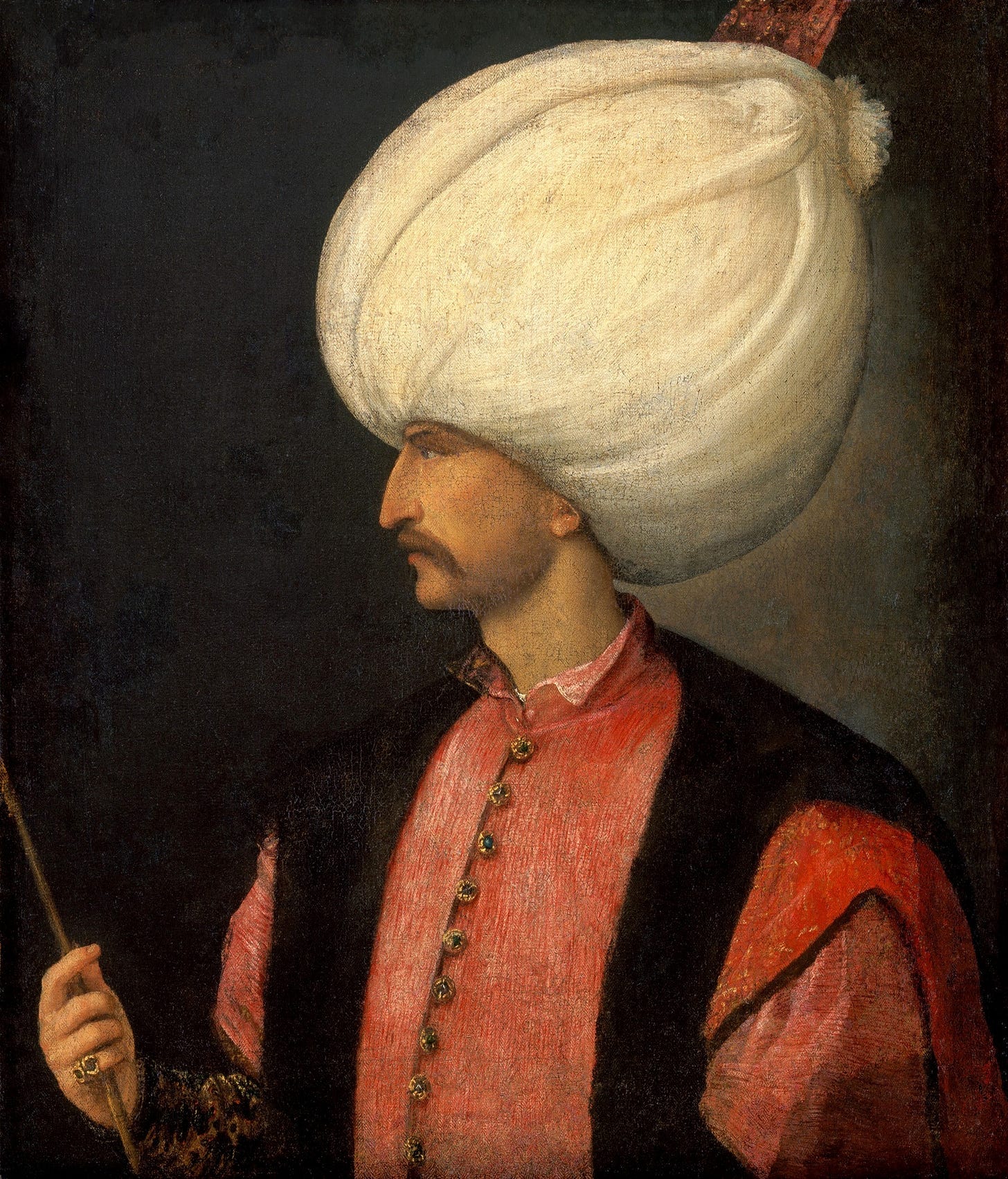
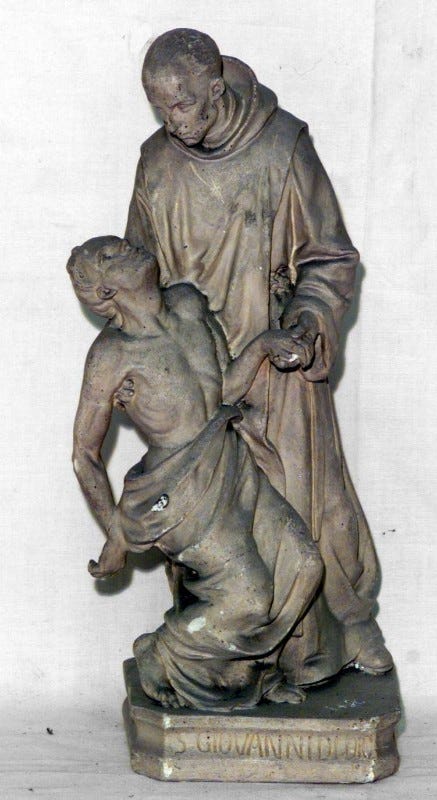
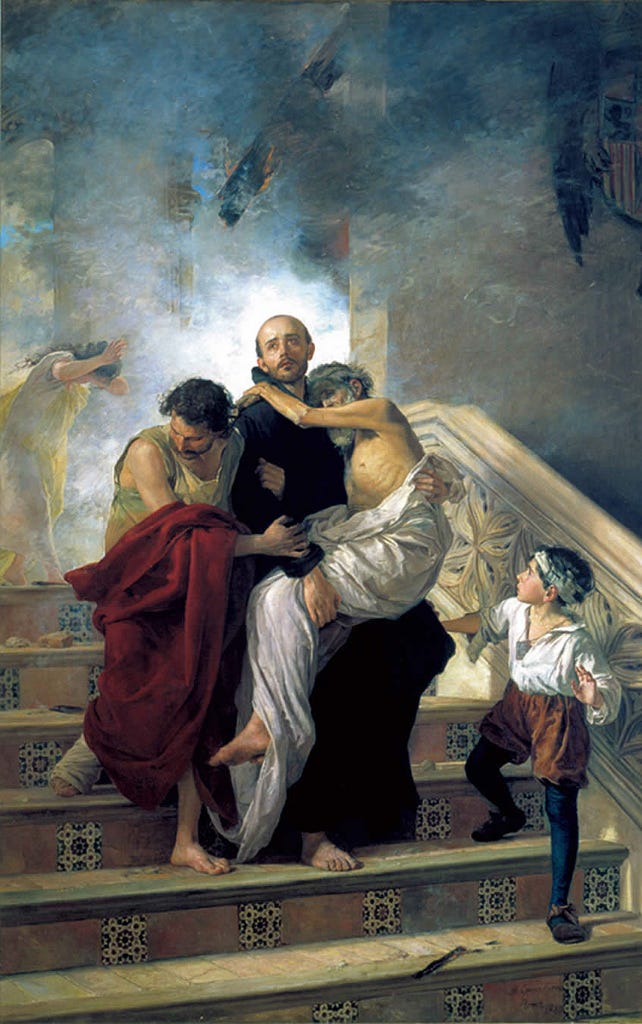


I love your Substack. Where do you get all your information? It would take a huge amount of work to source this and I want to know more!